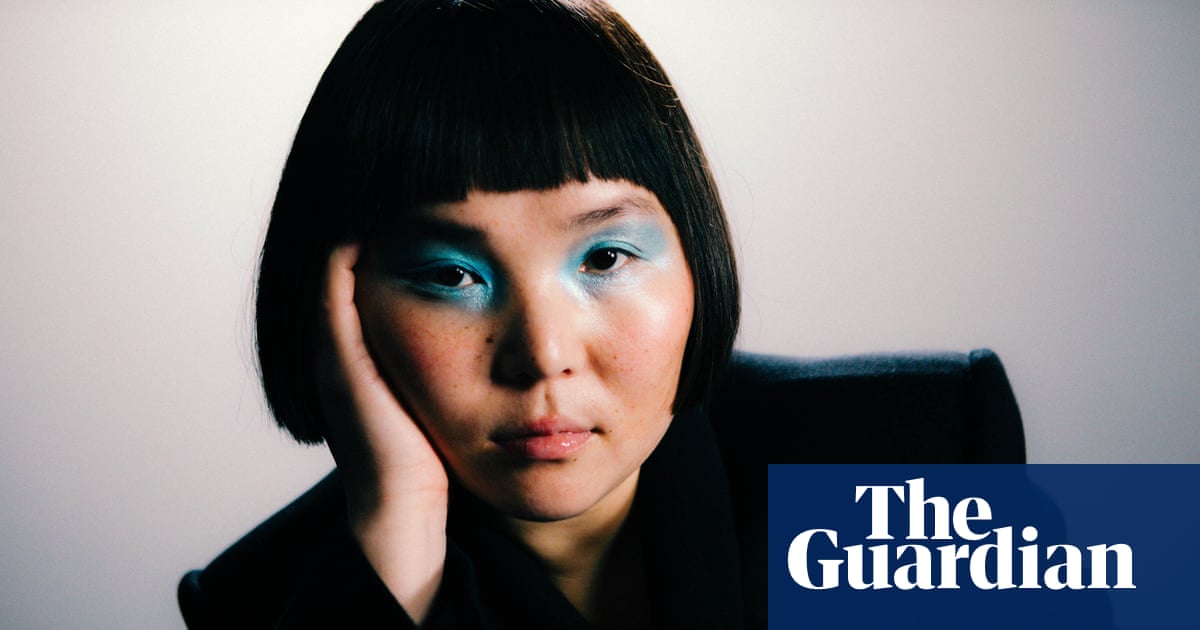‘I felt caught between cultures’: Mongolian musician Enji on her beguiling, border-crossing music

Growing up in the icy Mongolian capital of Ulaanbaatar, singing was as natural as speech for Enkhjargal Erkhembayar. “Every day after my parents came home from working in the local power factory, they would gather with a group of friends in our yurt to unwind and someone would always begin to sing,” she says. “Soon, we would all join in, singing old folk songs to keep warm and to express ourselves long into the night.” As Enji, 33-year-old Erkhembayar is now taking this music into international concert halls, having forged a beguiling hybrid of Mongolian folk music with acoustic jazz improvisation. She anchors her performances in the circular-breathing vocal style of Mongolian long song – a folk tradition where syllables are elongated through freeform vocalisations – her delivery tender and delicate, full of yearning emotion. Touring China and 11 countries across Europe last year, audiences were “applauding, laughing or crying” despite not understanding her Mongolian lyrics, she says by video call from her apartment in Munich, where she has lived for the past seven years. “It finally gave me a sense of confidence that people can hear this music without thinking it’s nonsense. I felt free to fully express who I am.” Enji performing live on KEXP – video That newfound self-belief takes root in Erkhembayar’s fourth album, Sonor, with confessional lyrics over some of her most wide-ranging music to date. Rather than employ long song vocals, Erkhembayar takes on a whisper-soft register on compositions such as Ulbar, singing wistfully about the beauty of sunset light over a jazz trio instrumental that wouldn’t feel amiss in Norah Jones’s repertoire. A sprightly cover of 80s Mongolian popular song Eejiinhee Hairaar rumbles through a funk-inflected groove of drums and Rhodes piano. Those evening post-work singing sessions may have been a daily part of her childhood, but Erkhembayar only began learning long song formally while training to become a kindergarten teacher. “I heard about someone who was giving lessons locally and decided to sign up for fun. She explained the techniques to sound big and hone your resonance but said it was only possible to find a real sound if I had the ‘singing gene’, a muscle memory I could tap into,” she says with a smile. “Surprisingly, my sound came within 14 days, it was so natural. I then decided to keep learning for another year, since it felt so incredible to use my voice in that way.” When bassist Martin Zenker arrived in Ulaanbaatar with a jazz education project from Munich’s Goethe-Institut, one of Erkhembayar’s teaching colleagues suggested she try out for his programme. She was accepted in 2014 and over the next two years Erkhembayar abandoned her teaching career in favour of jazz, her new obsession. “There isn’t much of a jazz scene in Mongolia, as all the music I would encounter as a younger person was Mongolian artists making English-language pop, which is still largely the case there, or local hip-hop groups like Tatar,” she says. “When I began to learn about jazz with Martin, I fell in love with it because it’s so free and sophisticated – compositions last a lifetime. It’s all about being in the moment and trusting your instinct, which felt the same as singing long song to me.” She visited Munich where she met longtime collaborator Paul Brändle and recorded her 2017 debut, then moved to the city permanently the following year and put out two more acclaimed records, 2021’s Ursgal and 2023’s Ulaan. View image in fullscreen Enji performing in Hamburg in September 2024. Photograph: Dpa Picture Alliance/Alamy Sonor features two spoken-word tracks in German – a language she learned at the Goethe-Institut programme in Mongolia, at the same time as she learned English: the group “communicated mostly through music”, she says. Meanwhile the guitar ballad Ergelt express Erkhembayar’s yearning for home: “Unfamiliar yet familiar, I am forgotten but still my own,” she sings in Mongolian, in a gentle falsetto, over Brändle’s finger-picked guitar lines. “Ergelt means ‘return’ and it was written last autumn when I was back in Mongolia visiting family,” Erkhembayar says. “I had this bittersweet feeling where I realised how much I’d changed in the years since I’ve been gone. People saw me a little differently in the way I spoke but in Germany I’m also reminded that I’m foreign, since no matter how good my German is, I’m always asked where I’m from. I felt caught between cultures and unsure about where I could return to.” Yet Erkhembayar’s music draws its beauty from her broad approach. “I still see myself as a jazz singer but I’d love to collaborate with a rapper or people with different voices,” she says. “I feel at my most confident and my music is becoming like my life, something that moves and doesn’t just stay in one place. Jazz, long song, Mongolia or Germany, I don’t know where I’ll end up – but I know I won’t stop singing.”



















